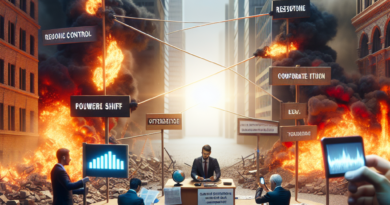Hypersonic missiles: NATO and Italy without defense. Interview with the general Carlo Landi
In the event of a war with Russia, Italy – and all of NATO in general – would not be able to intercept a Russian hypersonic missile which could potentially also carry an atomic warhead.
Gen.
explained it to us.
Carlo Landi.
This is a detail of no small importance given that Emmanuel Macron in recent hours reiterated how France is considering the possibility of sending its troops to Ukraine.
In this scenario we tried to take stock of the situation on the ongoing wars and the state of the Italian Army with the general, now retired, who was commander of the Experimental Flight Center and the Perdasdefogu range where he personally participated to the tests of the SAMP-T missile system.
Forty-one years of honorable career spent in the Air Force dealing with flight tests of the Tornado and EF-2000 and the development of complex weapon systems.
The outbreak of war in Ukraine has reignited a general arms race.
How is the Italian Army currently positioned? Already since the Second World War, but even more so today, it makes no sense to talk about the army, but rather about an integrated military instrument made up of the three armed forces: Army, Navy, Air Force.
The Italian instrument has been updated and modified in a more incisive way since the fall of the Berlin Wall and the emergence of areas of risk and conflict that did not exist before.
The military instrument must be proportionate to the international weight that a nation wishes to achieve, to what in jargon are called "ambitions".
You cannot expect to have a strong and listened to political voice without possessing and wanting to employ adequate military forces when the need arises.
The country's production capacity is also part of the military instrument, especially in the areas of armament and ammunition.
The war in Ukraine, which has now lasted for over two years, is demonstrating that for an effective defense, not only an operational capacity in the field is necessary, but also a great logistical capacity for the supply and renewal of materials.
Without beating around the bush too much, would Italy have the capacity to face a war against Russia? It's a rhetorical question, a fantastic one I would say.
It is no coincidence that Italy is one of the 12 founding countries of NATO, a decision taken in 1949 faced with the fact that Europe was now divided into two opposing blocs, and that the security of a country could not be ensured autonomously but depended on belonging to one or the other camp.
NATO was established in the "Western bloc" as a defensive political-military alliance.
Today, any hostile military act against our country would be considered an attack on the entire Alliance, including the United States.
In this case, beyond field support there would be the advantage of greater logistical and production capacity for armaments and ammunition.
Would our defense systems be able to intercept a Russian hypersonic missile right now? For at least three decades Italy has made great efforts to increase its so-called anti-missile defense capacity.
These are very complex programs, which require huge investments even in the development phase which must be followed by adequate testing and training.
We have an experienced and capable core group of companies, but it is difficult to advance a new agenda, especially when the threat is not in sight.
The nation has multiple needs and spending on armaments may seem like a waste.
Unfortunately, however, defensive capabilities cannot be invented overnight.
To answer the question directly, I would say that today in Italy we do not have, like almost nowhere else in Europe, defense capabilities against hypersonic missiles.
We are able to counter a conventional ballistic missile attack in small geographical areas of the country of strategic importance.
Ballistic missile defense is achieved with other missiles that intercept the attacker in the descending phase of its trajectory where its speed is supersonic (4-5 times the speed of sound).
The possibility of success depends on many factors including the distance between the two missiles, therefore on the distribution of the batteries and complex radar sighting systems on the territory to be defended.
It's a confrontation that lasts a matter of seconds.
Many have seen on TV the launches of the Israeli Iron Dome system which protects much of Israel's territory from missiles of this type.
Current NATO systems are not capable of intercepting every threat and type of missile.
Hypersonic missiles for example, such as Zircon, fly at speeds of the order of 8-9 Mach or more.
And it's not just the speed, but the possibility of multiple attacks conducted with swarms of ballistic missiles that would saturate the capabilities of the interceptor guidance radars.
Could an escalation in Ukraine with NATO also involved lead to a nuclear war? For almost 50 years, from the end of the Second World War to the fall of the Berlin Wall, nuclear weapons constituted the form of deterrence which, combined with other diplomatic actions, prevented the onset of other armed conflicts in Europe.
We have come to hypothesize a defined doctrine of mutual assured destruction (from the English Mutual assured destruction or MAD) based on the "nuclear triad" made up of bombers, missiles and submarines capable of ensuring the destruction of an adversary who was the first to launch a attack.
These systems have achieved the objective of preventing the use of atomic weapons over the years.
In summary, there is the theoretical possibility that a conflict between NATO and the Russian Federation could degenerate to the point of using nuclear weapons, but this is a radical hypothesis, extremely remote because, in such a scenario, both contenders would pay a very high price in terms of victims and levels of destruction even in their own countries.
In Brussels there has been talk of a common army again.
In your opinion, is this a feasible project? Joint European Armed Forces are an ambitious and complex objective, but one that must be pursued quickly.
The military instrument is one of the most important for implementing an effective foreign policy.
Until Europe is equipped with a unitary military instrument, it will be difficult and inefficient to obtain a foreign policy that achieves adequate results.
It may seem counterintuitive, but a strong military instrument is the first reason to dissuade people from starting armed conflicts.
Furthermore, a European defense instrument could limit technological dependence on the United States (today many European countries buy their high-tech military systems in the USA), increasing the employment and knowledge and capabilities of many companies such as Leonardo in the civil field.
Italy is also involved in the Red Sea, are there any risks for our men linked to the Aspides mission? There are no military activities (like any other complex activity) that do not involve risks.
Military training also carries increasing levels of risk.
In particular, dealing with an enemy that uses unusual, subtle forms of combat and, at the same time, with armaments based on high levels of technology, can raise the levels of risk.
However, our military is equipped with high levels of specific training, the weapon systems used are cutting-edge and, lastly, we are placed in a context of allies who multiply each other's forces.
One of the little visible advantages of our apparatus in the Red Sea in defense of international maritime traffic is the information tool.
Thanks to satellites and other systems we are able to know immediately when, how and where an attack is preparing.
And this is an unparalleled advantage in a conflict.
Given the hot fronts of Ukraine, the Middle East and Taiwan, how high is the risk of a third world war? Pope Francis recently said that we are experiencing a “piecemeal third world war.” Putting faith aside, Vatican diplomacy is one of the most active, functional and efficient in the world.
If this is their assessment, there must be some truth to it.
For now the various "pieces of the mosaic" have not yet come together.
We can only hope that this does not happen.
It is essential that Italy plays a proactive role so that the logic of imposition is replaced by that of international cooperation at all levels.
Eliminating the reasons for conflict and contention is the radical solution to conflicts, however we must sit at the negotiating table with credibility based also on an effective, efficient and ready-to-use military instrument.




